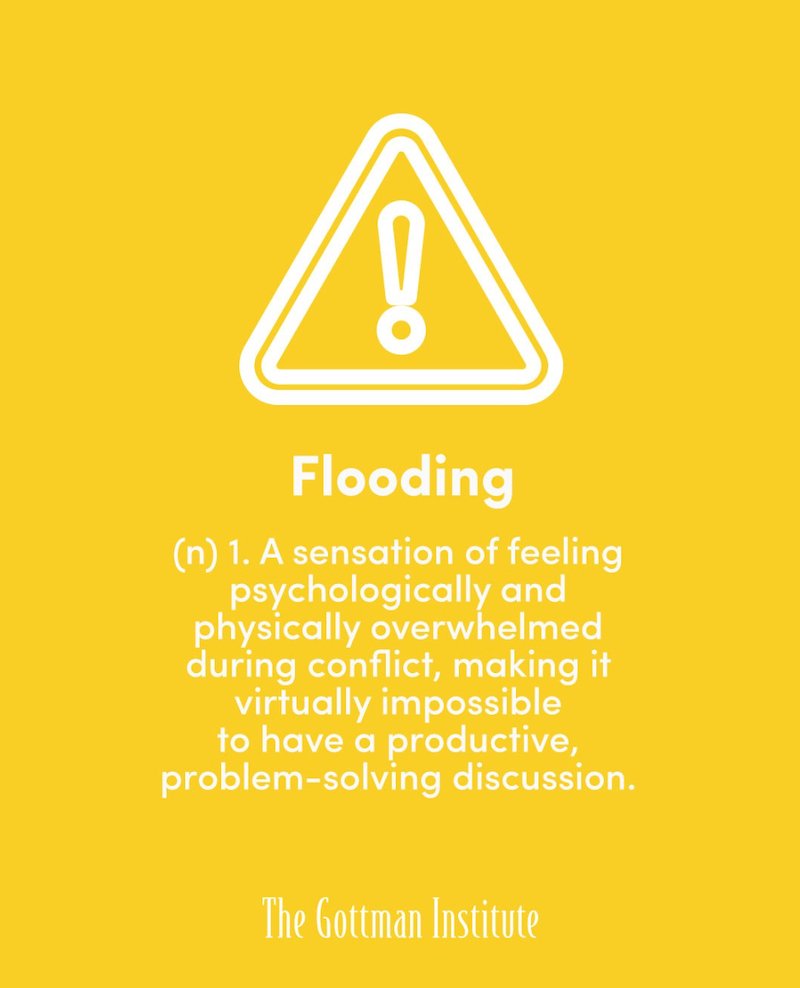If You Keep Feeling Overwhelmingly Triggered By Your Partner, This One Thing Could Be To Blame
Are tense interactions making you want to solo drive to the nearest canyon to scream into the void? We feel you.
by The Candidly Team
It’s good to own our triggers in relationships. Maybe it’s that stiff parental tone our spouse gets every time they offer up instruction. Or the way their eyes glaze over into seeming unconsciousness when we’re asking them to do something.
Or maybe it’s just a sheer incapacity to disagree without it becoming a whole big energy-sucking thing.
We accept the fact that when you share your whole complicated life with another whole complicated person, conflict is inevitable.
But that doesn’t stop it from being the most exhausting, nerve-snapping, spirit-testing, brain-breaking part of being in a relationship.
And sometimes, it all feels like too much. Tension arises, even just a hint, and we immediately have an overpowering urge to snap. Or escape. Or spiral.
We may argue every syllable that comes out of the other person’s mouth or feel so drained we can barely speak.
In these cases, the researchers at The Gottman Institute suggest that something else could be going on. It’s called “flooding.” And it can make resolving conflict with our partner close to impossible.
To explain what flooding is and the one most effective way to deal with it, we talked to Certified Gottman Therapist Kari Rusnak. Her answers were eye-opening, relatable, and felt like something we could try right away to make things go smoother in those moments when we feel complete overwhelm in an interaction.
We think you’ll feel the same.
1. Can you help us understand exactly what flooding is? How can you tell when it's not just a proportional response to your partner, who is obviously is going to drive you crazy sometimes?
Flooding is the body’s alarm system to help you escape a perceived threat. When physical harm threatens you, like a speeding car through a crosswalk, your body goes into fight-or-flight mode. Adrenaline surges through your body to prepare to fight the threat or get away quickly. Your heart rate increases, your breathing quickens, digestion slows down, blood pressure increases, and it’s all to help you to safety.
This also happens for many when conflict arises in their relationship. You can tell it’s flooding by the response you have not matching a response you would have when you are feeling calm. You might completely shut down or raise your voice and say things you don’t really mean.
2. Obviously most couples fight. And we're all just out here trying to learn ways to fight less or, at least, do it "better." But for people who are finding any conflict in their relationship extremely triggering or inflaming or draining emotionally, what might be going on?
If you find the conflict in your relationship triggering or draining it can definitely be a sign of chronic flooding. When you are flooded you lose your ability to think clearly and listen well. It can cause a cycle of the conflict not being resolved and happening over and over again. This can also be a perpetual problem, one that never gets solved and repeats itself regularly.
3. Can you list out some specific signs to look out for that indicate WE may be feeling flooded in our relationship?
Some signs you can look for in yourself for flooding:
You often say things you don’t really mean.
Your voice raises.
You interrupt or talk over your partner.
You feel out of breath.
Your heart races and you may feel like you are having a panic attack.
You stonewall, withdraw, or shut down during conflict.
You feel very defensive.
You use contempt towards your partner.
4. Ok, so what would you say is the most effective, go-to plan we might put into action the minute we feel flooded? Is there a way to get better at noticing when it's happening? Can you walk us through the next steps?
When you notice the first signs of flooding it’s time for a time out. Nothing good comes out of conversing when you are flooded. In John Gottman’s research, he found that taking about a 20 minute break to self-soothe before coming back together [can help you calm down].
Come up with a phrase that you and your partner agree on to take a break. Separate, self-soothe, and don’t think about the conflict. Once you feel calmer you can return to problem solving.
5. And….the inevitably impossible question: what if it’s our partner who is getting flooded? Is there any way to broach this with them?
You don’t even need to tell your partner who the time out is for when calling one. Just get them on board with taking a break when things get heated. Let them know what it can look and feel like and how you think it would be helpful to try it out for yourself.
6. At what point can you tell if you're getting flooded or if there's a real unsolvable problem in your relationship that indicates you maybe should seek outside help or possibly even consider that it's not a healthy relationship for you?
It’s always helpful to seek outside help for conflict. If you have thought about it even a little then it’s a good sign it’s time to reach out. A trained couples therapist can help you navigate your conflict better. If your partner isn’t on board with therapy or you don’t feel ready to do it together, individual counseling is also really helpful in identifying unhealthy relationship patterns.
And…
If you want to understand more about exactly what’s going on when you or your partner feels flooded as well as some more ideas of what to do about it, watch this video from researcher Dr. Julie Gottman:
This article is for informational purposes only. It is not intended to be used in place of professional advice, medical treatment, or professional care in any way. This article is not intended to be and should not be a substitute for professional care, advice or treatment. Please consult with your physician or healthcare provider before changing any health regimen. This article is not intended to diagnose, treat, or prevent disease of any kind. Read our Terms & Conditions and Privacy Policy.







